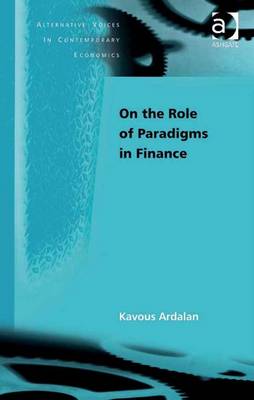Alternative Voices in Contemporary Economics
3 total works
Social theory can usefully be conceived in terms of four key paradigms: functionalist, interpretive, radical humanist and radical structuralist. The four paradigms are founded upon different assumptions about the nature of society and each generates distinctive theories, concepts and analytical tools. Finance theory is based on the functionalist paradigm and for the most part finance theorists are unaware of the philosophical tradition to which they belong. By relating finance to the four paradigms, Ardalan's work offers a concise understanding of the multifaceted nature of finance. He recommends theorists adopt a diversity of paradigms and discusses its benefits by application to the following phenomena: the development of academic finance, the mathematical language of academic finance, the mathematics of academic finance, money, corporate governance, markets, technology and education.
A common belief is that the European welfare states are in a position of crisis or heading towards one with the process of globalization removing any hopes of eventual worldwide welfare. This book challenges this assumption arguing that a proper understanding of the future role of the welfare state requires a broader social perspective that encompasses the interaction of economic, political and social processes. The Future of the Welfare State provides an interdisciplinary analysis of the practical and theoretical challenges which the welfare state (and progress towards world welfare) can and must meet in the future.


